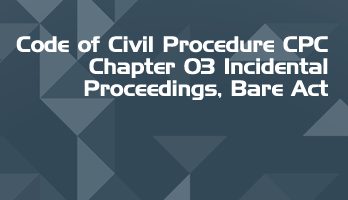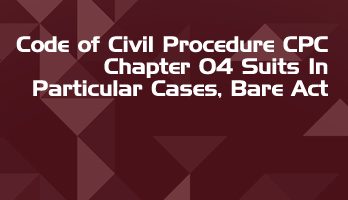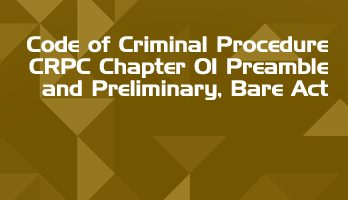A 'Bare act' is the actual legislation passed by the Parliament of India. Generally, an act sets out the high level legal and policy principles applicable to the subject matter of the law.
Most acts are accompanied by 'subsidiary legislation' such as rules, regulations, notifications and orders; which address the actual implementation detail of the act.
Free Full Course Available on LawMint's YouTube Channel
How to Land Your Dream LLB Internship in a Top Law Firm
- Part 1 - Introduction
- Part 2 - Internship Planning
- Part 3 - Internship Research
- Part 4 - Building Your Profile
- Part 5 - The Email
- Part 6 - The Resume
- Part 7 - The Cover Letter
- Part 8 - The Interview
- Part 9 - Self Development
Practical and comprehensive course, with real examples and step-by-step analysis of the complete internship application process. Check out LawMint's YouTube channel now!
Negotiable Instruments Act, 1881
Chapter IX – Of Noting and Protest
Section 99 – Noting
When a promissory note or bill of exchange has been dishonoured by non – acceptance or non – payment, the holder may cause such dishonour to be noted by a notary public upon the instrument, or upon a paper attached thereto, or partly upon each. Such note must be made within a reasonable time after dishonour, and must specify the date of dishonour, the reason, if any, assigned for such dishonour, or, if the instrument has not been expressly dishonoured, the reason why the holder treats it as dishonoured, and the notary’s charges.
Section 100 – Protest
When a promissory note or bill of exchange has been dishonoured by non – acceptance or non – payment, the holder may, within a reasonable time, cause such dishonour to be noted and certified by a notary public. Such certificate is called a protest. Protest for better security. When the acceptor of a bill of exchange has become insolvent, or his credit has been publicly impeached, before the maturity of the bill, the holder may, within a reasonable time, cause a notary public to demand better security of the acceptor, and on its being refused may, within a reasonable time, cause such facts to be noted and certified as aforesaid. Such certificate is called a protest for better security.
Section 101 – Contents of protest
A protest under section 100 must contain:
- either the instrument itself, or a literal transcript of the instrument and of everything written or printed thereupon;
- the name of the person for whom and against whom the instrument has been protested;
- a statement that payment or acceptance, or better security, as the case may be, has been demanded of such person by the notary public; the terms of his answer, if any, or a statement that he gave no answer or that he could not be found;
- when the note or bill has been dishonoured, the place and time of dishonour, and, when better security has been refused, the place and time of refusal;
- the subscription of the notary public making the protest;
- in the event of an acceptance for honour or of a payment for honour, the name of the person by whom, of the person for whom, and the manner in which, such acceptance or payment was offered and effected. A notary public may make the demand mentioned in clause (c) of this section either in person or by his clerk or, where authorized by agreement or usage, by registered letter.
Section 102 – Protest for non – payment after dishonour by non – acceptance
When a promissory note or bill of exchange is required by law to be protested, notice of such protest must be given instead of notice of dishonour, in the same manner and subject to the same conditions; but the notice may be given by the notary public who makes the protest.
Section 103 – Protest for non – payment after dishonour by non – acceptance
All bills of exchange drawn payable at some other place than the place mentioned as the residence of the drawee, and which are dishonoured by non – acceptance, may, without further presentment to the drawee, be protested for non – payment in the place specified for payment, unless paid before or at maturity.
Section 104 – Protest of foreign bills
Foreign bills of exchange must be protested for dishonour when such protest is required by the law of the place where they are drawn.
Section 104A – When noting equivalent to protest
For the purposes of this Act, where a bill or note is required to be protested within a specified time or before some further proceeding is taken, it is sufficient that the bill has been noted for protest before the expiration of the specified time or the taking of the proceeding; and the formal protest may be extended at any time thereafter as of the date of the noting.
Important Central Acts in Regional Languages
Legislative department website also features regional language versions of several important Central Acts.
Free Full Course Available on LawMint's YouTube Channel
How to Land Your Dream LLB Internship in a Top Law Firm
- Part 1 - Introduction
- Part 2 - Internship Planning
- Part 3 - Internship Research
- Part 4 - Building Your Profile
- Part 5 - The Email
- Part 6 - The Resume
- Part 7 - The Cover Letter
- Part 8 - The Interview
- Part 9 - Self Development
Practical and comprehensive course, with real examples and step-by-step analysis of the complete internship application process. Check out LawMint's YouTube channel now!












